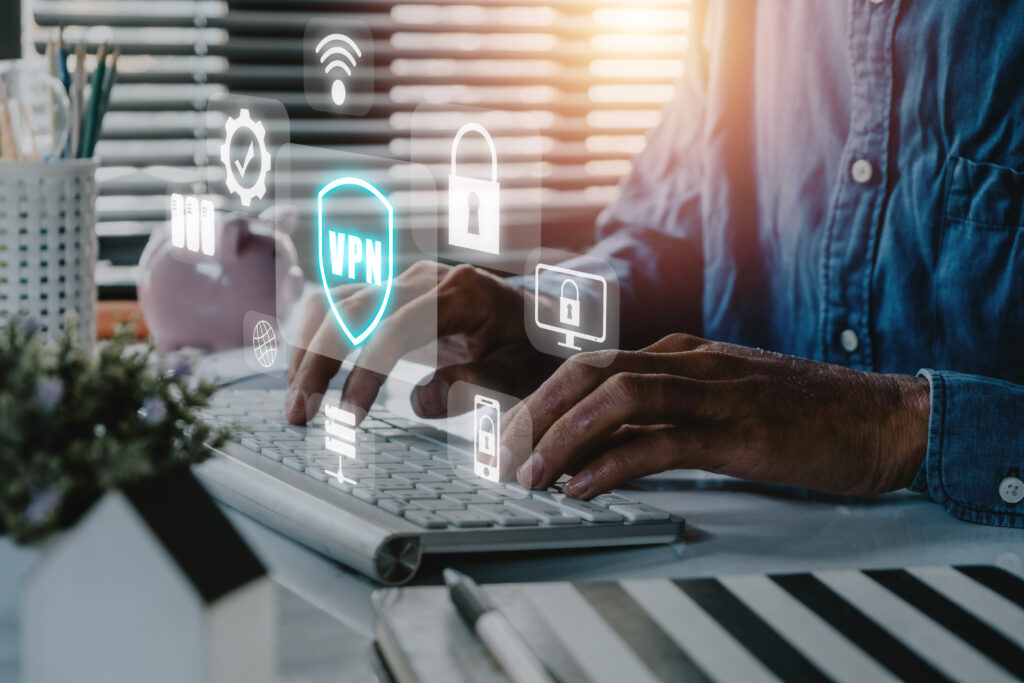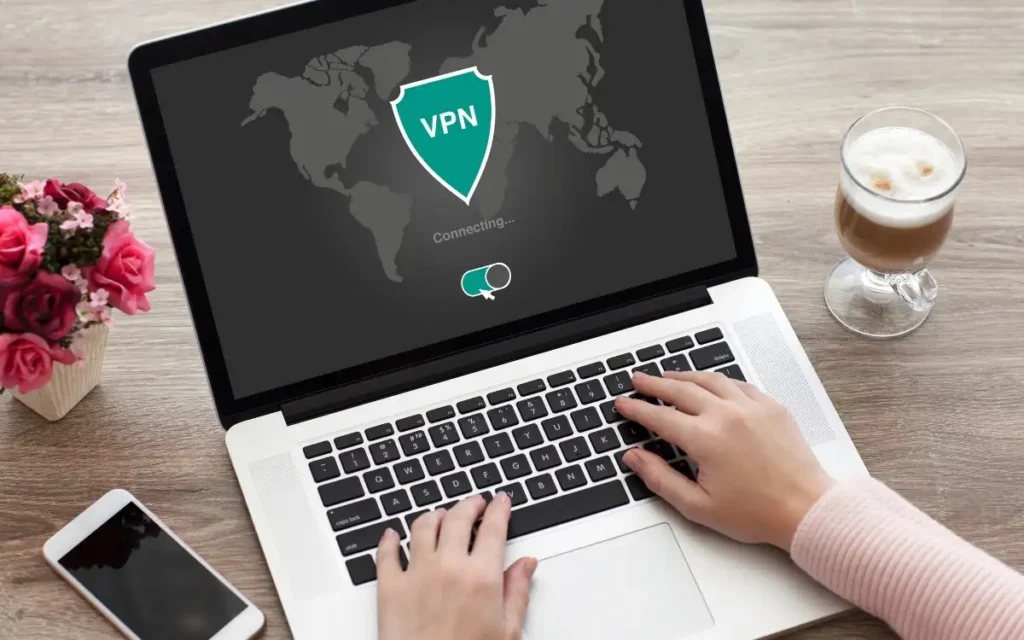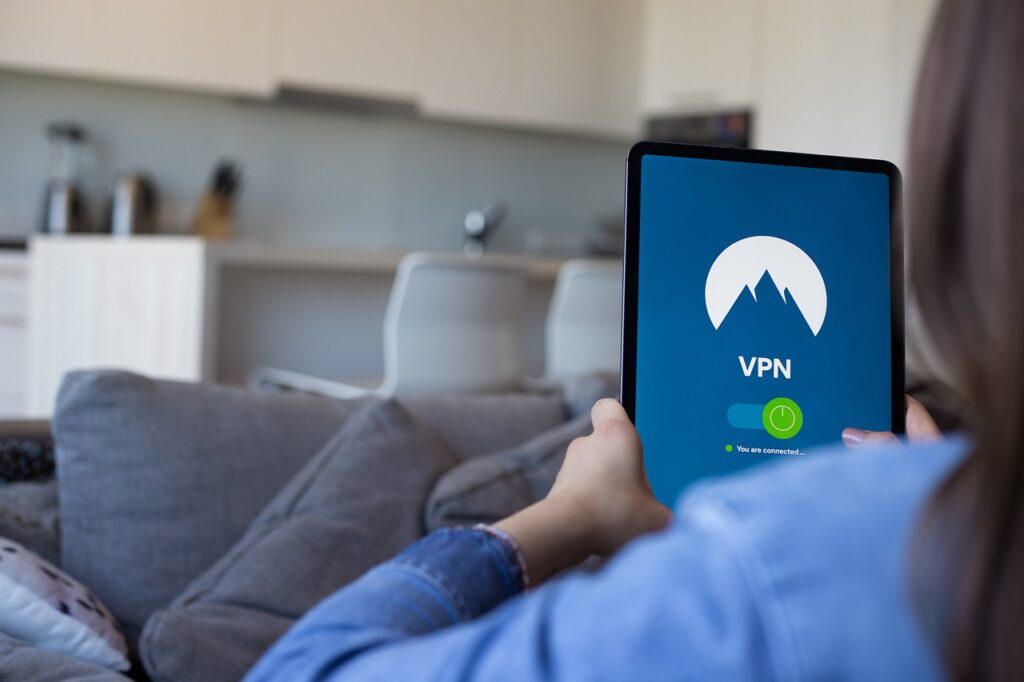In the past, only enterprises used VPNs to allow workers to access company systems networks. However, that has changed over time, especially with the increased need for personal online security. Today, anyone can use a VPN when browsing online.
An Overview Of A VPN
To begin with, VPN is an acronym for a virtual private network. It refers to a technology that protects your internet connection to enhance your privacy online. In other words, it’s a service that helps establish a protected network connection when using public networks.
VPN works by creating an encrypted system for your personal data. It also protects your online identity by hiding your internet protocol (IP) address. Therefore, you can use public Wi-Fi securely. You can partner with a company service provider like EarthWeb to learn more about VPNs.
Benefits Of A VPN Connection
 There are several undeniable benefits of a VPN connection. They include the following:
There are several undeniable benefits of a VPN connection. They include the following:
1. Provides Secure Encryption
To be guaranteed that the files or documents you share online are safe is to ensure they only reach the intended recipients. However, this isn’t always the case since sometimes they can land in the wrong hands which can put you at risk of online attacks. But the good news is that you can leverage the power of VPN technology to secure your data.
That said, a VPN provides secure encryption. It enables you to encode your data or change it into a non-standard language. Someone must have the right binary code or encryption key to read your data. Therefore, you won’t be worried even when using public Wi-Fi since your data will be hidden from public networks.
2. Enables You To Access Region-Blocked Websites And Services
If you like browsing the internet, you must have noticed that there are some contents you can’t access from your location. That happens because regional contents aren’t always accessible everywhere. You need to be from a specific place or country to access some websites, content, and services.
Fortunately, a VPN can enable you to access region-blocked websites and services. It allows you to change your IP address to make a website owner or service provider think you’re browsing from a region that allows access. As such, you can get access to the information you’d otherwise not access without a VPN.
3. Helps Prevent Data Throttling
Data throttling happens when you’ve consumed a certain amount of data. As a result, the internet service provider decides to slow down your service. A VPN can be one of the best remedies for that. It’ll hide all your online activities, so not even your internet service provider can know the amount of data you’re using. Therefore, you won’t face any restrictions or data throttling.
4. Allow You Access To Regional Sports
Most people love sports because of the fun associated with them. However, some sports and games can’t be available from other locations. For instance, there are several sports and games you can’t view or participate in if you’re outside the United States. That’s why you need a VPN on your computers and phones. The right tool will give you access to sports and game coverages that are restricted from your region.
Finding The Right VPN Provider

Source: helpdeskgeek.com
As detailed above, there are several benefits of adopting VPN technology. However, you must partner with the right provider. But with so many out there, sometimes it can be difficult to spot the most suitable one. Luckily, there are some strategies you can implement to ensure you connect with the right person or company. They include the following:
- Check the Level of Encryption They Offer
One of the reasons you’d want to adopt VPN technology is to enhance your online data security. However, that might not be possible if the selected provider offers a low level of encryption.
A high level of encryption is harder to be compromised, so it guarantees better online security. Therefore, before you start working with any VPN provider, ask them or visit their website to see what level of encryption they offer.
- Research How Many Servers They Have
It’s always good to partner with a VPN server with many servers to help enhance your convenience. For instance, it gives you more freedom to select the best server for your needs.
To determine the number of servers available, you need to browse your preferred VPN provider’s site. It should show you all the available servers and their locations.
- Find A Provider with A VPN Compatible with Your Computer
Compatibility is an important consideration when finding a provider. Various providers offer different types of VPNs; some will be compatible with your devices, while others won’t. Check to see that the person you partner with is someone who will provide a solution that’s compatible with your gadgets.
- Check the Provider’s Reputation
Some people claiming to offer VPN products and services online aren’t genuine. Also, some are genuine but not committed to offering quality services. You won’t get better returns on your investment if you connect with such providers that’s why you need to check their reputation.
One of the best ways to ensure you connect with a VPN provider with a positive reputation is to read online reviews. That way, you can see other clients’ opinions regarding your preferred VPN service provider. Ensure you connect with a provider with more positive comments than negative ones.
Another great strategy for finding a good VPN provider is asking for recommendations. This involves looking for referrals from people you know who use VPNs. When you connect with them, ask them about their experiences with the various providers. Doing this will help you simplify your selection process.

Source: dailynewshungary.com
Takeaway
Adopting VPN technology is one of the best ways to enhance your online security. It enables you to encrypt files to ensure no unauthorized person can access your data. It also lets you access content and services from geo-blocked regions. However, you must select the best VPN solution. You can use the information in this article to get started with VPN technology.



